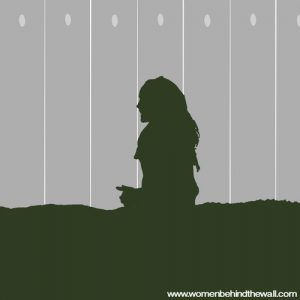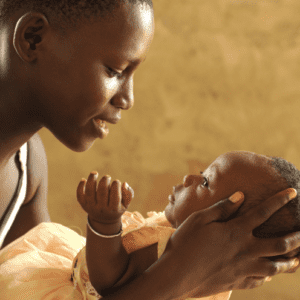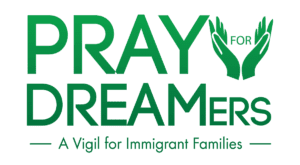 Podcast Episode #7: Helping Each Other Heal
Podcast Episode #7: Helping Each Other Heal
The Women Behind the Wall podcast highlights female voices from the Holy Land, and is hosted and produced solely by women who live and work in Jerusalem. The podcast seeks to amplify minority voices and perspectives, especially women’s experiences in the private sphere as it is affected by the public sphere. We hope you’ll join us here on Thursdays as we highlight each episode.
Listen to Helping Each Other Heal here
After the 1948 war, what Israel calls the war of independence and what Palestinians called the “Nakba,” or catastrophe, some Palestinians remained in their towns and villages inside the newly established State of Israel. Before the 1967 war, Israel gave this particular group of Palestinians Israeli citizenship, and the state officially refers to them as Israeli Arabs. However, many of them reject this term and refer to themselves as Palestinian-Israelis or Palestinians of ‘48, among other terms.
Today, there are about two million Palestinians in Israel who hold Israeli citizenship. Some of them are Christian; the vast majority are Muslim. In episode seven of the Women behind the Wall podcast, listeners hear from Shireen, a Palestinian woman from the Galilee with Israeli citizenship who belongs to the minority community of Christians. She shares about her marriage to a West Banker, her reflections on identity, and the conflict.
“I think that God is not pleased with what’s going on. He wants us to be peacemakers.”
Shireen recalls going through a confusing time of questioning her identity during university; although she identifies as Palestinian Christian, she has Israeli citizenship, speaks Hebrew fluently, and went to an Israeli university. She was exposed to different types of people during this period, and for the first time, Jewish classmates. Of the experience, she acknowledges, “It’s good, it’s important. It’s part of my life.”
Palestinians in the West Bank cannot travel into Israel without receiving a permit or permission from the Israeli civil administration. But Palestinians living in Israel can move freely into the West Bank. So, when Shireen met a man that she was interested in who was from the West Bank, it meant it would be more difficult for him to visit her. She was allowed to drive her car into the West Bank, but he was not allowed to drive into Israel, and could only take the bus. He could only visit if he was granted a permit and go through checkpoints. Even though all of Shireen’s friends in Galilee liked him, they were worried about him being from the West Bank. Her parents panicked for similar reasons; if the couple were to get married and have children, what identity cards would they be given? Would they be given Israeli passports like their mother?
Shireen expected that moving into the West Bank would be difficult, but after marrying her husband she says she found it very easy. “I didn’t expect to adjust that quickly.” She says that until she lived in the West Bank she did not understand everything that was going on in the conflict. She questions whether there could ever be a Palestinian state, and what would become of the settlements? “Will they accept to leave the settlements and go live in Israel? Or is it all going to be one country and that’s it?”
Until she lived in the West Bank she did not understand everything that was going on in the conflict.
Shireen’s husband is not allowed to drive in Israel, so anytime they visit her family she must drive their car. Now, with kids, it can make the trip to the north very difficult. They decided it’s easier for their kids to be in Palestinian schools because if they went to Israeli schools, and something happened, nobody from their West Bank family would be able to go and help the children. If the couple wants to fly anywhere together, her husband is typically not able to travel through the airport in Tel Aviv without permission, and permission is never guaranteed. He can travel through Amman, Jordan, but even if they both decide to travel through Amman, Shireen has to cross a different border than her husband. “It’s difficult because we have children. I would have to travel by myself with the children. What are we going to do?”
Shireen is very clear that she is happy in Palestinian society and in the West Bank. She feels that it’s more focused on community and less about the individual than in Israel. But she acknowledges it comes at a psychological cost, and other difficulties as well. Like when she gave birth to her two children, she had to go back to where she is registered as an Israeli citizen. Otherwise, it would make having Israeli citizenship difficult for their kids. But going to Galilee made it complicated for her husband to be present for the births. She had to drive in Israel, with her husband in the passenger seat, while having contractions. She says they can laugh about it now, but it was a big concern then, wondering, “Where am I going to have to deliver my baby?”
Shireen says that her Christian faith leads her in everything she does, even in the conflict. “I think that God is not pleased with what’s going on. He wants us to be peacemakers. And he wants peace. Like, I feel hope when I see that Palestinians and Israelis are getting to know each other. They are meeting, they are breaking these boundaries of culture and everything, and are really willing to talk about what is going on in their lives.” She is part of a group like this, Palestinians and Israelis meeting, which she believes helps to recognize each other’s pain and helps each other to heal.
God, we ask for healing of the land, the people, and the body of Christ. We pray that all the boundaries that separate the people of the Holy Land from you, from peace, and from one another will be knocked down by justice, love, and persistent hope. Thank you for Shireen, and the countless women like her who are striving for community and connected-ness amidst the conflict, just as Christ has called us all to do. Amen.
CSA is grateful to our friends at Churches for Middle East Peace for reprint permissions.


